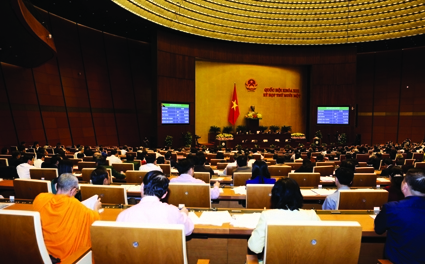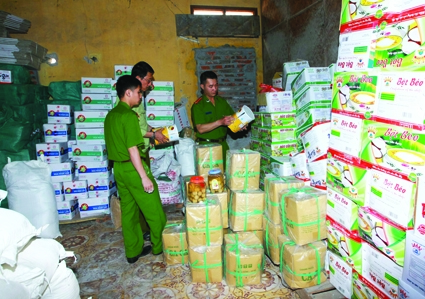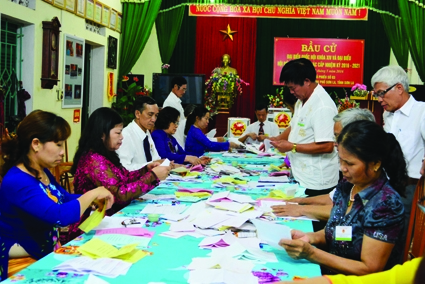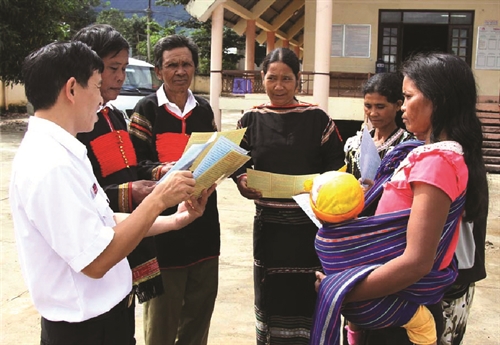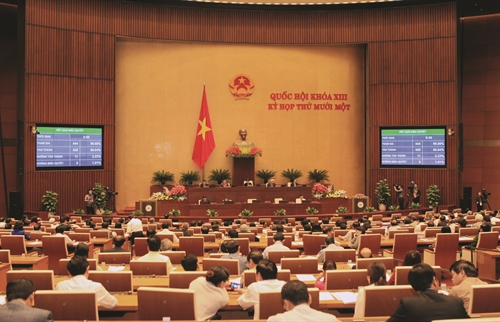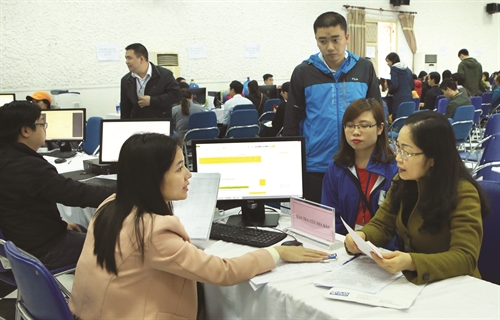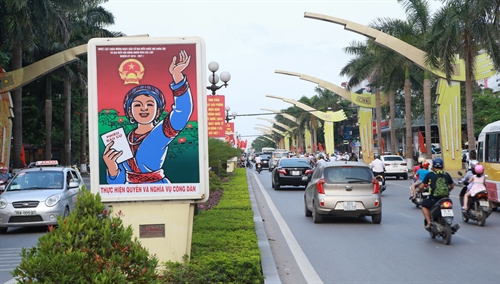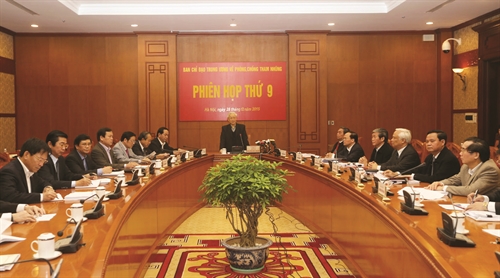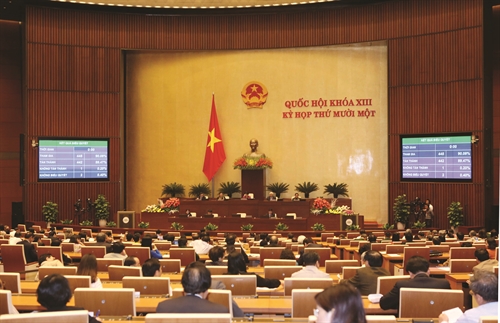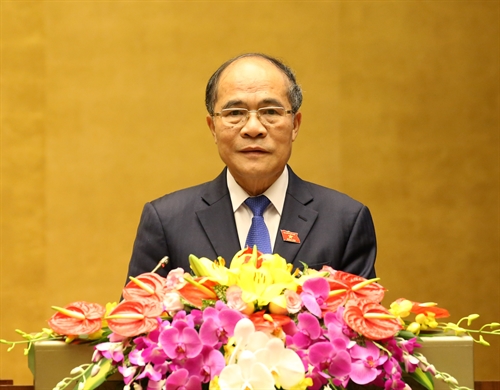 |
The Government on May 14 issued a massive decree detailing the 2015 Law on Promulgation of Legal Documents, which will go into effect July 1. With 189 articles arranged in 11 chapters, Decree 34 details in the most specific manner many articles and clauses of the Law so that they can promptly be implemented.
Vietnam Law and Legal Forum talks with Nguyen Hong Tuyen, Director of the Ministry of Justice’s Department of General Affairs on Legislative Development, about the Decree’s notable contents.
One of the most noteworthy new points of the 2015 Law on Promulgation of Legal Documents is provisions adding a policy making process for making proposals on elaboration of legal documents. Could you go into detail about how Decree 34 provides for this process?
According to the 2015 Law on Promulgation of Legal Documents, before starting to draft laws, ordinances, or a number of government decrees[1] and provincial-level People’s Council resolutions[2], agencies proposing the formulation of such documents will have to undergo a policy making and approval process.
Specifically, for a proposal for making a law or an ordinance tabled by the Government, or a proposal for making a resolution of a provincial-level People’s Council put forward by a provincial-level People’s Committee, the policy making process consists of four steps.
The first step involves reviewing the situation of implementation of relevant regulations, studying relevant information, documents and treaties, outlining policy contents, and assessing regulatory impacts.
The next step is to circulate the proposal to related stakeholders for comment.
The third step is sending the proposal to the Ministry of Justice or the concerned provincial-level Justice Department for appraisal.
After the proposal is appraised, it will be submitted to the Government or provincial-level People’s Committee for consideration and approval - this is the last step of the policy making process.
The policy making process can be seen as a regulatory breakthrough in the elaboration and promulgation of legal documents. To facilitate the implementation of such regulation, Decree 34 devotes a separate chapter to stipulating in detail the process of making and approving a proposal for formulation of a legal document. Policy outlining steps, types of regulatory impacts to be assessed and impact assessment methods are presented in Articles 5, 6 and 7 of the Decree. Instructions on how to collect opinions on the proposal are provided in Article 10. Responsibilities of competent authorities as well as the dossier and procedures for appraisal of the proposal are provided in Articles 13 thru 16. Meanwhile, the submission and approval of the proposal are guided in Articles 17 and 18.
Regulatory impact assessment is a very important activity to find out best solutions for policy implementation. Could you further explain about regulations on this issue?
Though the 2015 Law on Laws has only one article (Article 35) on the responsibility for and contents of regulatory impact assessment, it is true that this is a very important activity which is conducted to find out optimal solutions for policy implementation.
In order to ensure that regulatory impacts will be assessed in a complete and comprehensive manner, Decree 34 specifies five types of regulatory impacts to be assessed, including economic impact, social impact, gender impact, impact of administrative procedures and impact on the legal system. The Decree also specifies the contents of assessment for each type of impact, methods of assessment as well as responsibility to make regulatory impact assessment reports.
In addition, in order to guide the implementation of the 2015 Law’s provisions on the responsibility for impact assessment of new policies put forward during the process of elaborating. appraising and verifying draft documents, the Decree sets a specific time limit and process for regulatory impact assessment in this case. Accordingly, policy-proposing agencies will have to prepare a regulatory impact assessment report within 10 days after putting forward a new policy proposal.
Ministries and sectors have exerted great efforts to draft and promulgate legal documents detailing the implementation of newly enacted laws and ordinances. However, there remain delays in the issuance of implementing regulations. So, what are solutions to speed up the drafting and issuance of implementing regulations?
In order to put an end to the late issuance of implementing regulations, Decree 34 introduces several solutions.
Firstly, the Decree concretizes the 2015 Law on Laws’ requirement that “draft implementing regulations must be prepared and submitted together with the draft law or ordinance.” It says that the agency in charge of drafting a law or an ordinance must prepare implementing regulations right after the Government decides to submit the draft law or ordinance to competent authorities.
Secondly, the Decree defines more clearly the responsibility of related ministries and sectors to draw up a list of implementing regulations for each law or ordinance. This list must be presented to the Prime Minister for decision.
Particularly, the Decree says that ministries, sectors and localities are responsible for ensuring the quality and progress of drafting implementing regulations. The Ministry of Justice must scrutinize the drafting process and report on its progress and arising problems to the Prime Minister on a periodical basis.
Vietnam is undergoing a deep and wide international integration process. As a result, more and more foreign investors, lawyers and scholars wish to learn about Vietnam’s legal system. In this context, how does Decree 34 provide for the translation of legal documents into foreign languages?
Compared to current regulations, Decree 34 extends the scope of legal documents which can be translated into foreign languages, including English. According to Decree 24 issued in 2009, which details the implementation of the 2004 Law on Promulgation of Legal Documents, only government decrees and prime minister decisions concerning or affecting trade in goods or services, or intellectual property must be translated into foreign languages. Now under Decree 34, all government decrees and prime minister decisions, which are issued to enforce treaties to which Vietnam is a contracting party or directly concern foreigners living and working in Vietnam or foreign businesses operating in the country, will be translated.
Moreover, in order to enhance the responsibility for and ensure the accuracy of the translations, the Decree adds a provision saying that translating agencies must be responsible for the accuracy of their translations.-
